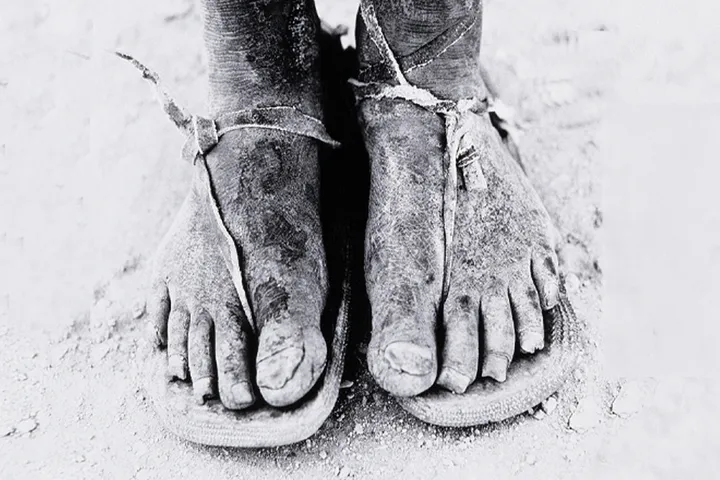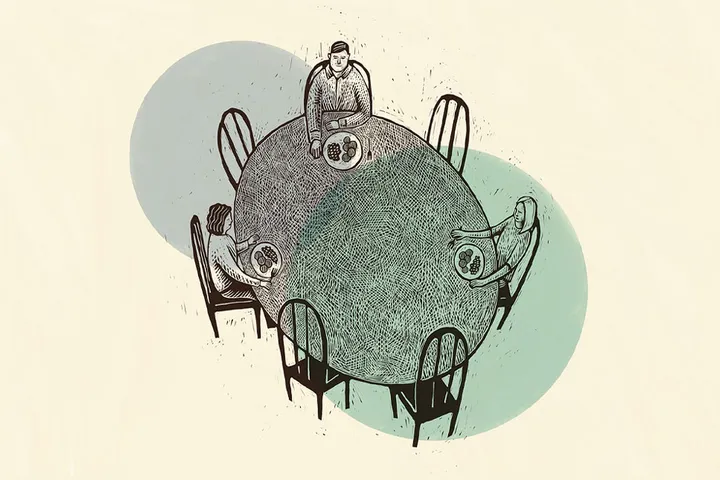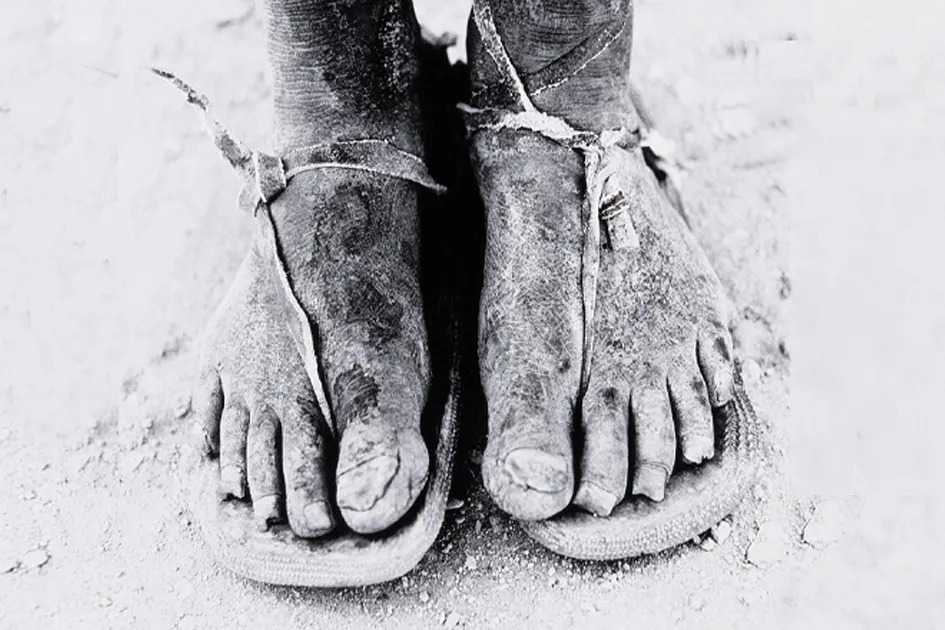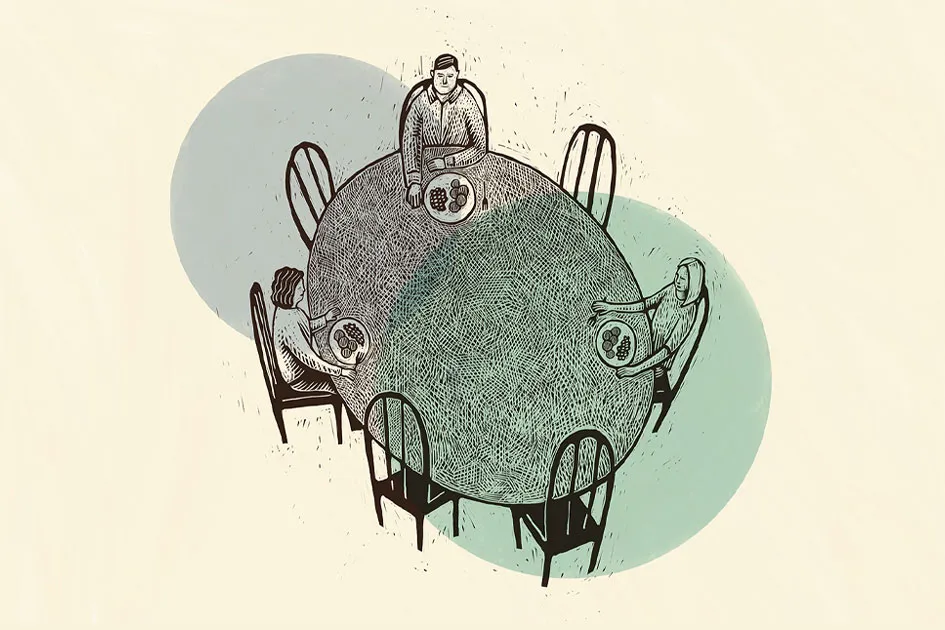By mid-morning last Fourth of July weekend, the beach was already packed with sunbathers, multi-generational families, pop-up sun canopies, and dueling radios. I sighed when I took in this colorful, sunburnt sea of humanity. We hadn’t planned on a beach vacation this year, but two medical emergencies kept us close to home on the busiest week of the summer season. We thought the familiarity of our favorite beach town with easy access to our family would be a reliable, restful solution between hospital visits.
 Illustration by Hokyoung Kim
Illustration by Hokyoung Kim
Instead, we found ourselves overwhelmed by the sheer volume of people that weekend. I gave up on my book our first day on the beach, after being unable to ignore the group blaring a sports radio commentary. I looked at the ocean and watched unusually rough waves tumble toward the shore. Suddenly, jet skiers in red bathing suits arrived holding buoys. They skimmed the surface at full speed while heading for the swimming area at our beach. Within minutes, a truck full of lifeguards navigated the crowded knots of sunbathers and drove to the edge of the water. A siren-blasting EMS vehicle arrived soon after.
In all the commotion, most of us stood to watch the rescue unfold. My heart raced as I silently prayed for a happy outcome, even though I stood too far away to see the activity clearly. After 15 minutes, I breathed a sigh of relief as the responders slowly started to dissipate. The truck and EMS vehicle finally drove off, and the lifeguards on jet skis circled each other in conversation before slipping away in a stream of foam. I later read a news report stating that lifeguards made over 100 rescues that weekend. The crises were due to a combination of rough conditions and inexperienced or tired swimmers who ventured into deep waters without the stamina to stay.
Every time I visit the ocean, I think of my former pastor, who used to say that being in relationship with God is like standing on the beach where there is both the safety of the shore and the unpredictability of the ocean. He explained that some of us are sitting on the shore, some of us have a toe dipped in the surf, and others of us are treading water where it’s too deep to touch bottom. But as believers, all of us are making our way with God, no matter where we sit, stand, or swim. He said this in response to Christians who lean toward judging the apparent strength or weakness of others’ relationship with God, based on the way they practice their faith. It’s not our place to determine how “spiritual” someone else is, according to what we consider progress.
I love this imagery because it allows for freedom of movement in all directions. Our relationship with God over a lifetime isn’t static, nor will it move in a straight line or a single direction. Deep waters can feel perilous in seasons of hardship or suffering, but God does not leave us alone there. At times, we may need a friend, a spiritual practice, or a lifeline of some sort to help guide us, breathless and waterlogged, back to shore. We have freedom to move as needed to regain our equilibrium and catch our breath, and we can enter the water again when we feel energized and it seems safe to do so. There’s no condemnation for wherever we are in that process. This picture of relationship with God has been particularly freeing to me over the past few years.
As I stood on the shore last July 4th, another beach trip came to mind. A friend and I had traveled to Miami years earlier for a weekend getaway in the spring. It was too cool for us to swim, despite many other swimmers braving the water, so we waded only up to our shins before sitting in chairs to chat. From the corner of my eye, I spotted a crowd of people running along the shoreline from our right. They shouted and waved their hands wildly for the swimmers to get out of the water. Moving closer to understand their shouts and gesticulations, we saw swimmers running to the shore as a shark’s fin broke the surface of the shallow water.
To our left, a single swimmer in a pink donut-shaped floatie bobbed, oblivious to the shouts. His escape route to shore was directly in the path of the shark, but he had his back to the danger and his eyes on the horizon. He finally turned and saw the crowd calling him to safety. I have never seen a grown man tumble out of a floatie so fast and swim, stumble, leap to shore. He gasped for air when he emerged from the water as a fin cut through the waves where he'd just been floating.
I recalled more than anything how he moved from oblivious to terrified in a matter of seconds. It galvanized him to move, to do something. The past few years I have dealt with anxiety unlike anything I’ve experienced before. If you’d asked me five years ago, I would have said I was comfortable floating in the deep in relationship with God. But when life became unbearably hard, when sharks circled in the waters of my life, I needed to exit the water. I needed to come away from the waves and the creatures that silently arrived without my permission.
I didn’t walk away from my relationship with God, of course, but I knew that in order to heal, the way I approached our relationship needed to look different. I needed a chair on the beach in the sunshine, not a pink floatie in the rollicking waves of the ocean, with its undertow and unknowns. I needed a place where Jesus and I could just be. I found myself at a point where my standard spiritual practices couldn’t sustain me, and I wondered how to authentically meet God in this season of deep suffering. The usual forms of prayer and worship failed me, and I stepped away from attending church for a long season. Instead, I joined a spiritual formation program that met for online retreats monthly. I listened to children’s lullabies based on Scripture. I experienced God’s love through contemplative and imaginative prayer, prayer journaling, and an online Scripture meditation group populated by women of faith in their 70s.
I’ve continued these practices even as life stabilized, because they have been a source of deep healing. They’ve drawn me into God’s love in a gentle, restful, and hopeful way that was foreign to me in my former faith habits. I’m sure some have questioned my commitment to God as I’ve seemingly pulled away from traditional practices, but where the Spirit of the Lord is, there is freedom. I’ve been patient with myself, and in time I began to feel a soft ache that led me to consider church again. This past year, I visited a local congregation outside of my previous denomination. The services are quiet, liturgical, with only a handful of elderly parishioners present. Beautiful wood beams create an arch in the ceiling of the sanctuary, and every time I visit, they remind me of the drawings of Noah’s Ark in my childhood Bible. The church feels safe and rooted in a way that compels me to return. It reminds me that I don’t have to tread water until the rescue crew shows up. I can heed the inner voice calling me to the rest and safety of the beach and know my God will meet me there.





